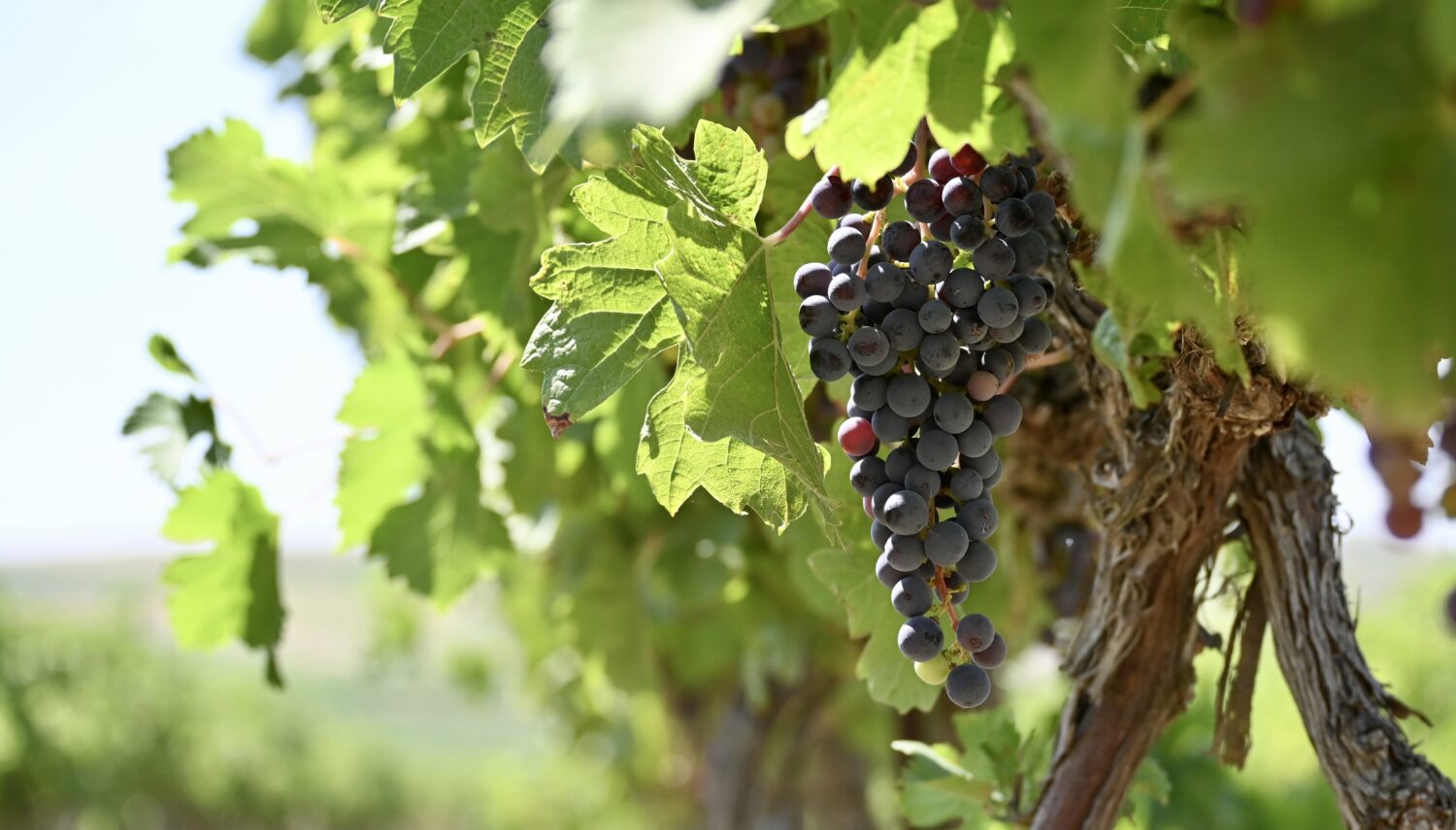Published in Wines & Vines
By Melissa Hansen, Washington State Wine Commission
June 2017
It’s often thought that if some is good, more must be better. But that axiom does not apply to regulated deficit irrigation, according to research conducted by Washington State University (WSU) scientists. Regulated deficit irrigation is a management strategy used by grapegrowers to fine-tune canopy development and improve fruit-quality attributes.
“Though some water stress can often help improve wine grape quality, there is such a thing as not providing enough water for the vine,” says Dr. Markus Keller, lead investigator of regulated deficit irrigation research supported by the Washington State Wine Commission, a state agency representing all wine grape growers and wineries. Keller, a horticulturist at WSU’s Irrigated Agriculture Research & Extension Center in Prosser, specializes in vine physiology, irrigation and cold hardiness and is author of The Science of Grapevines: Anatomy and Physiology.
The research by Keller et al. could help wine grape growers save up to 30% of the water used to irrigate grapevines and save energy costs to pump the water without sacrificing grape yields and quality. Throughout the world, water availability is a growing problem due to a changing climate. During the 2015 drought in Washington state, water was rationed in prime irrigated acreage in the Yakima Valley, where high-value crops such as apples, grapes and hops are grown.
Read more by downloading the full article above.

